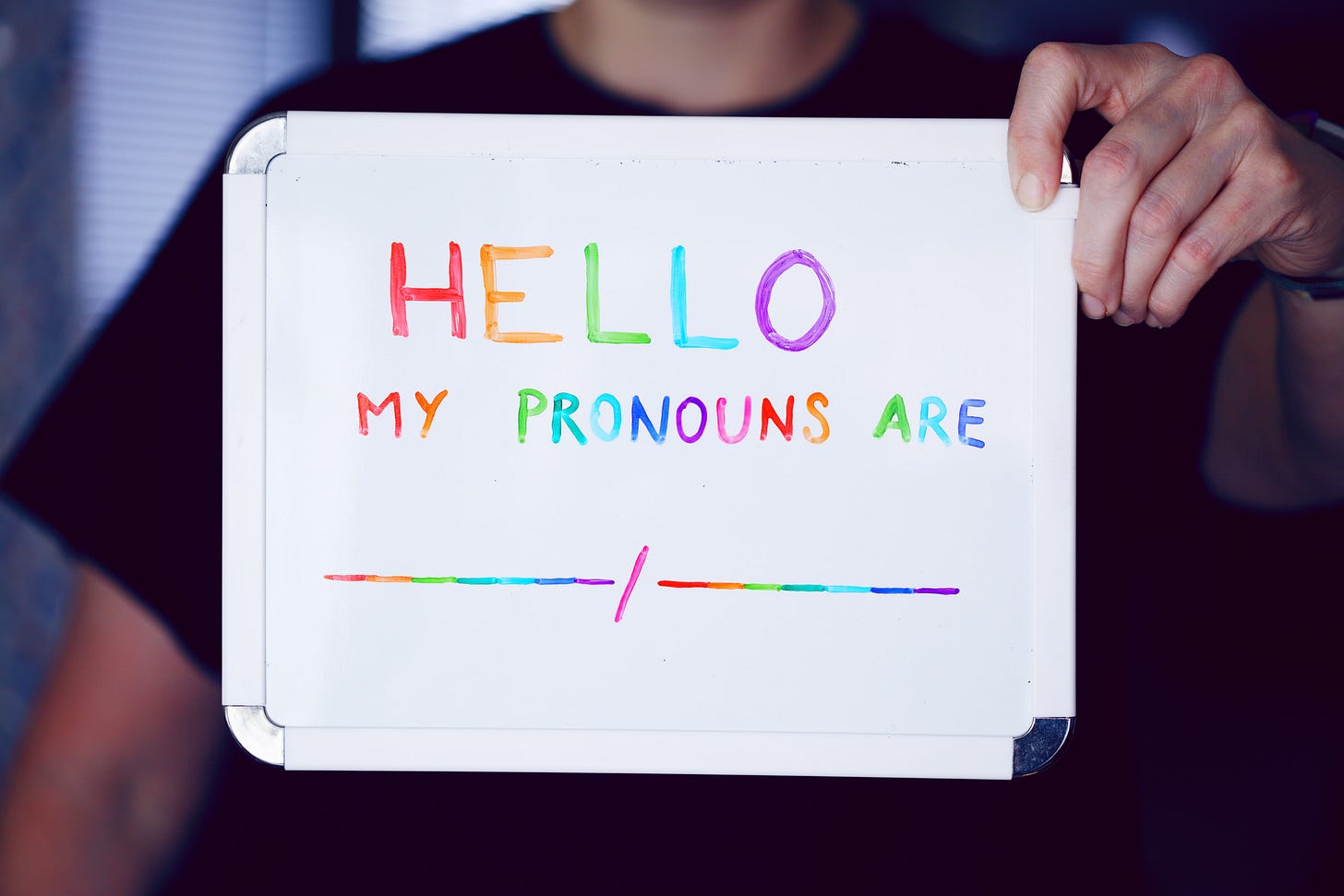The dysfunction of the trans debate
Lofty talk of free speech and government fiddling won't fix this quagmire
The other week on the Right Dishonourable I remarked – rather obviously – that the trans debate was unusually incendiary, even for politics. You can't touch it without seriously upsetting people, to the point where death threats may be issued.
My podcast has largely avoided the topic, despite its persistence. That Jazza and I built the show based on two people taking different sides on Brexit is suggestive: either that we have become cowards, or that we understand such a discussion risks hurting our friendship. But either way, we can’t talk about it.
When we do touch on it, there is the care you’d hope a bomb disposer takes in a hostage crisis. On the episode above we were discussing the fact that Labour MP Rosie Duffield had avoided her party’s conference in Brighton due to concerns about her safety relating to comments about the trans debate (although she turned up at a fringe event).

This absence would have been shocking anyway, but it was made moreso by the recollection that Labour MP Jo Cox had been killed for her politics just over five years’ ago. That the same party had leveraged the Sarah Everard murder to criticise the government for failing to protect women made Labour look confused, hypocritical and dishonest.
On the outskirts of Brighton in the University of Sussex, a similar controversy has followed, with the academic Kathleen Stock having her safety threatened at the University of Sussex. Like Duffield she is gender-critical, or a trans-exclusionary radical feminist (TERF) to her critics, and has just published a book, Material Girls, on her stance.
The questions at hand are relatively simple, even if it’s tricky to answer them. First, are natal women’s interests hurt when trans women are allowed access to female only spaces like refuges, prisons or sports? And if this is so, what is the appropriate resolution to this conflict?
Trans activists feel that being denied access to such spaces hurts trans people, even endangering their lives. This may be directly in the case of a stint at a men’s prison, or indirectly through the implicit denial of a trans person’s identity, which can contribute to mental health problems and suicide. Hence the claims that Stock’s speech is dangerous, and that censoring it would improve trans people’s safety.
On the other side, gender-critical feminists argue against allowing trans women into female spaces. To take sport, the argument is that trans women retain significant anatomical advantages, however much medical interventions have altered their bodies. This means they can’t compete fairly against natal women, and in some cases their participation risks injury for other players (see rugby for an example of this in practice).
To put it simply, some believe that birth sex matters and that it is right to discriminate between the sexes in narrow instances. Others do not. I declare that my sympathies are with Stock, but the British public’s view is highly mixed, and with plenty of caveats.
I do not intend to lay out why here, but I think my trepidation is suggestive, and I’m not alone. James Kirkup, a Spectator writer, did an entire series in an oddly circumspect voice, often not voicing his opinion directly but carefully placing facts so you aren’t in much doubt. Unlike many of the women he writes about, he hasn’t reported threats to his safety.
Such pieces exemplify the weirdness of this conversation: we are having it all the time, but much of it shifts between whispers and shouts. Many people aren’t quite saying what they think, having watched those who lost their livelihoods and feared for their lives. Others scream and still feel scared.
Such a knot is unlikely to be untied through lofty debates about free speech, nor government policies alleging to protect it. The problem is in the culture, and is acute on the trans issue if not unique to it. How do we get past it? I honestly can’t say.



